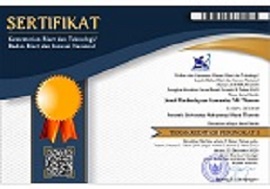Improving Trademark Literacy Through Digital Training and Mentoring for MSMEs in the Jawara Depok Community
DOI:
https://doi.org/10.37012/jpkmht.v7i2.2854Abstract
Brand ownership is a crucial form of legal protection for the continued business identity of Micro, Small, and Medium Enterprises (MSMEs). MSMEs are strategic pillars in Indonesia's national economic structure. According to data from the Ministry of Cooperatives and SMEs (2024), MSMEs contribute more than 60% to Gross Domestic Product (GDP) and employ approximately 97% of the national workforce. Despite their significant contribution, MSMEs still face various structural challenges. Unfortunately, most MSMEs in Indonesia do not yet understand the importance of trademark rights and lack the technical skills to register them digitally through the Directorate General of Intellectual Property (DJKI) system. This Community Service activity aims to improve MSME legal literacy through online trademark registration training and assistance. This activity involved 25 business actors who are members of the JAWARA Depok Community, with methods that included counseling, hands-on practice using the DJKI platform, and post-training assistance. Evaluation was conducted through pre- and post-tests using a Likert scale. The results showed an increase in participants' understanding scores from an average of 3.29 to 3.67, a 0.39-point increase. These findings demonstrate that a practice-based educational approach and personal mentoring are effective in improving trademark literacy among MSMEs. This activity also strengthens the synergy between higher education institutions and the community in realizing legally and digitally resilient MSMEs.
Downloads
Published
Issue
Section
Citation Check
License
Copyright (c) 2025 Desyria Pratiwi, Lia Ekowati, Yusep Friya Purwa Setya, Utami Puji Lestari, Maulida Salmi Utie, Muthia Ulfa, Bangun Widoyoko

This work is licensed under a Creative Commons Attribution 4.0 International License.
Jurnal Pemberdayaan Komunitas MH Thamrin allows readers to read, download, copy, distribute, print, search, or link to the full texts of its articles and allow readers to use them for any other lawful purpose. The journal allows the author(s) to hold the copyright without restrictions. Finally, the journal allows the author(s) to retain publishing rights without restrictions Authors are allowed to archive their submitted article in an open access repository Authors are allowed to archive the final published article in an open access repository with an acknowledgment of its initial publication in this journal.

Lisensi Creative Commons Atribusi 4.0 Internasional.













